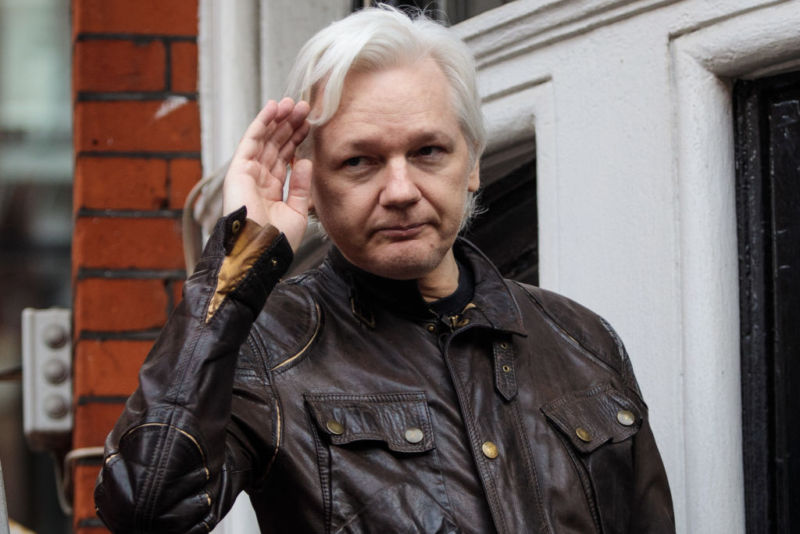
Swedish prosecutors said Friday that they were dropping the long-running rape investigation into Julian Assange. The embattled founder of document-spilling site WikiLeaks has been living in Ecuador's embassy in London since 2012 in a bid to avoid prosecution on those allegations and to shield himself from a potential US espionage prosecution.
The Swedish Prosecution Authority chief Marianne Ny said that the agency has "decided to discontinue the investigation" because neither Assange nor Ecuador would cooperate.
Almost 5 years ago Julian Assange was permitted refuge at the Ecuadorian embassy in London, where he has resided ever since. In doing so, he has escaped all attempts by the Swedish and British authorities to execute the decision to surrender him to Sweden in accordance with the EU rules concerning the European Arrest Warrant. My assessment is that the surrender cannot be executed in the foreseeable future.
According to Swedish legislation, a criminal investigation is to be conducted as quickly as possible. At the point when a prosecutor has exhausted the possibilities to continue the investigation, the prosecutor is obliged to discontinue the investigation.
Assange, 45, has always maintained his innocence. His attorney, Per Samuelsson, said, "An innocent man proved he was not guilty." The authorities, however, said that they were not declaring Assange's innocence but instead conceding that they could not leap the legal hurdles presented by Assange's diplomatic protection.
Elisabeth Massi Fritz, the attorney for Assange's accuser, said, "My client is shocked, and no closure decision can get her to change that Assange has exposed her to a rape."
Still, Assange isn't expected to walk out on his diplomatic protection any time soon. While potential US espionage charges loom, the British Metropolitan Police Service still has an arrest warrant dating to 2012. He is accused of jumping bail when he failed to surrender to the Westminster Magistrates' Court in connection to Swedish extradition proceedings involving the rape allegations.
"The Metropolitan Police Service is obliged to execute that warrant should he leave the Embassy," the agency said. The alleged bail offense carries a maximum year in prison.
Nye, meanwhile, said the statute of limitations expires in 2020 over the rape allegations. But she said that because of the law, the investigation cannot be reopened unless Assange returns to Sweden.
WikiLeaks and Assange became almost household names after the site disclosed the "collateral murder" video and thousands of other Iraq and Afghanistan war documents it received from Chelsea Manning, an Army intelligence officer convicted for that leak. Manning's 35-year sentence was commuted by President Barack Obama in January, and she left the military brig at Fort Leavenworth, Kansas on Wednesday.
Just days before Obama commuted Manning's sentence, Assange announced that he would surrender to US authorities if Obama showed Manning mercy. Assange backed out of that pledge, however, and said he meant he would surrender only if Obama allowed Manning to leave the brig immediately, not on May 17.
Assange fears he could be charged in the US for exposing the secrets Manning leaked, in addition to a host of other leaks such as those disclosing hacking tools held by US spies. It is not clear, however, why leaks from Assange's site would have fewer constitutional protections than other leaks of classified data that appear in US news publications.
That constitutional conundrum hasn't stopped a top US official from beating his chest at WikiLeaks. Despite President Donald Trump's claim to "love WikiLeaks" during the election when the site was exposing Democratic National Committee secrets, CIA Director Michael Pompeo has threatened the document-spilling site. He called WikiLeaks a "non-state hostile intelligence service often abetted by state actors like Russia." That comment was in reaction to WikiLeaks' recent release of all types of CIA espionage documents, including leaks about the agency's hacking tools.
reader comments
252